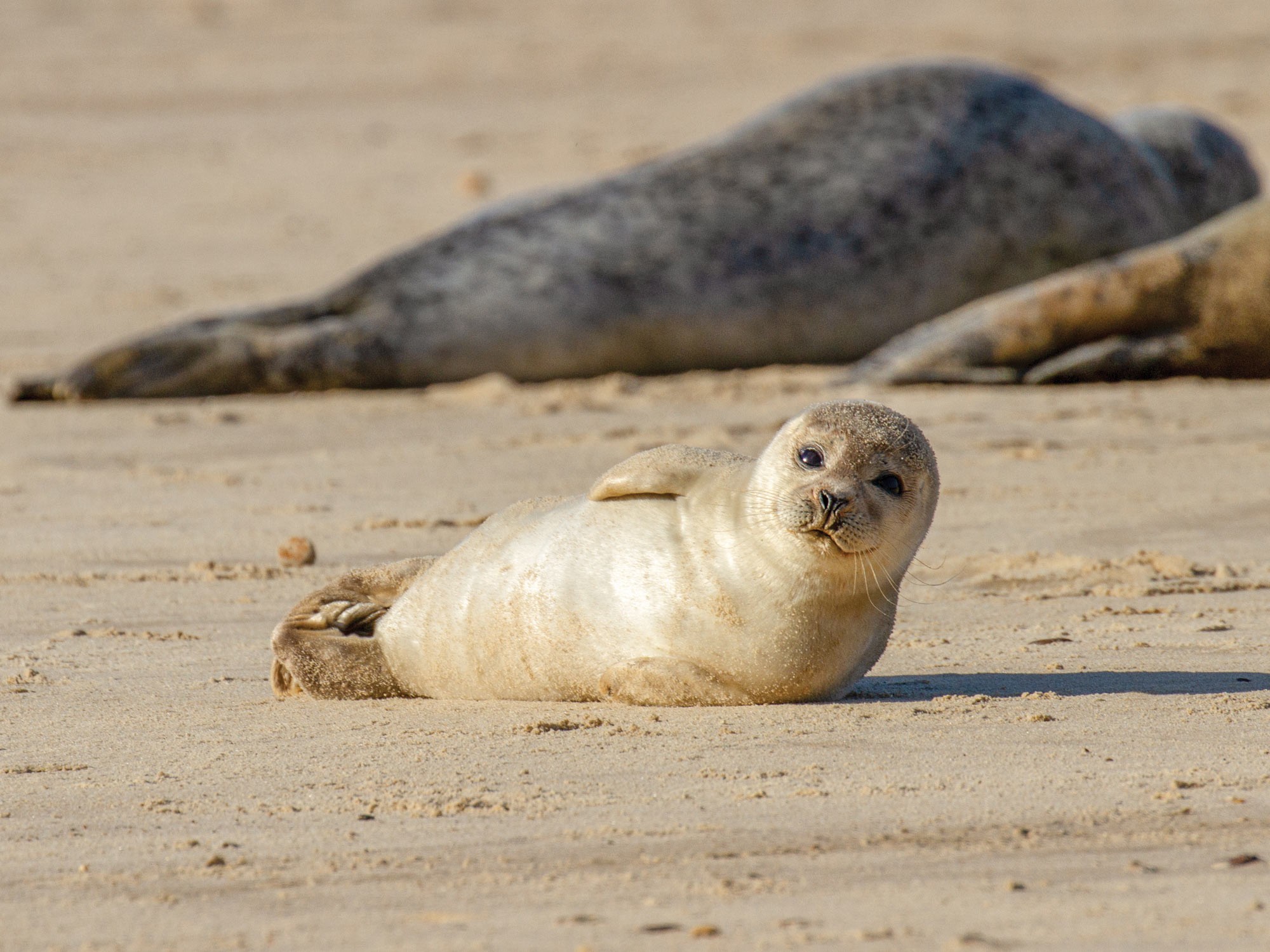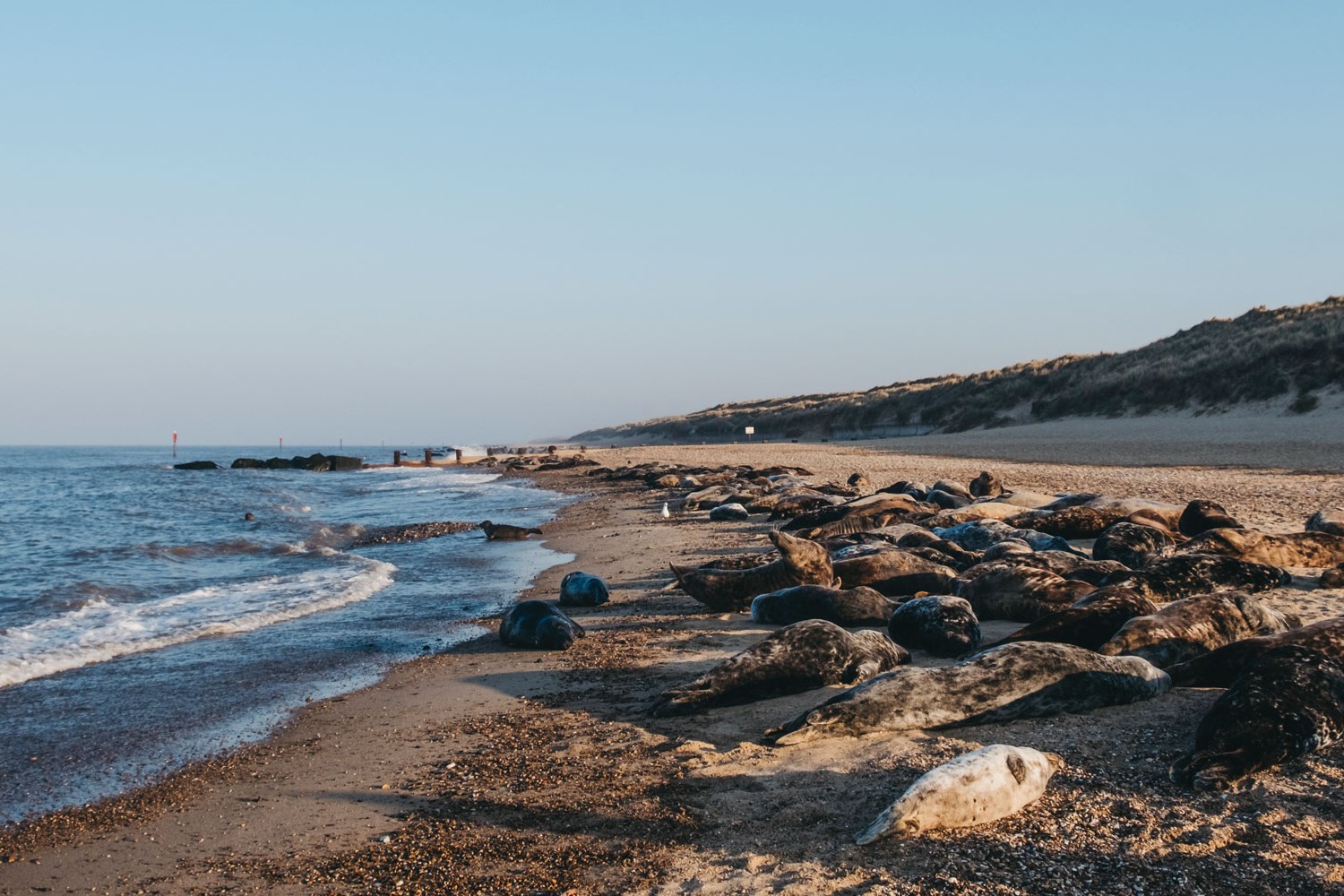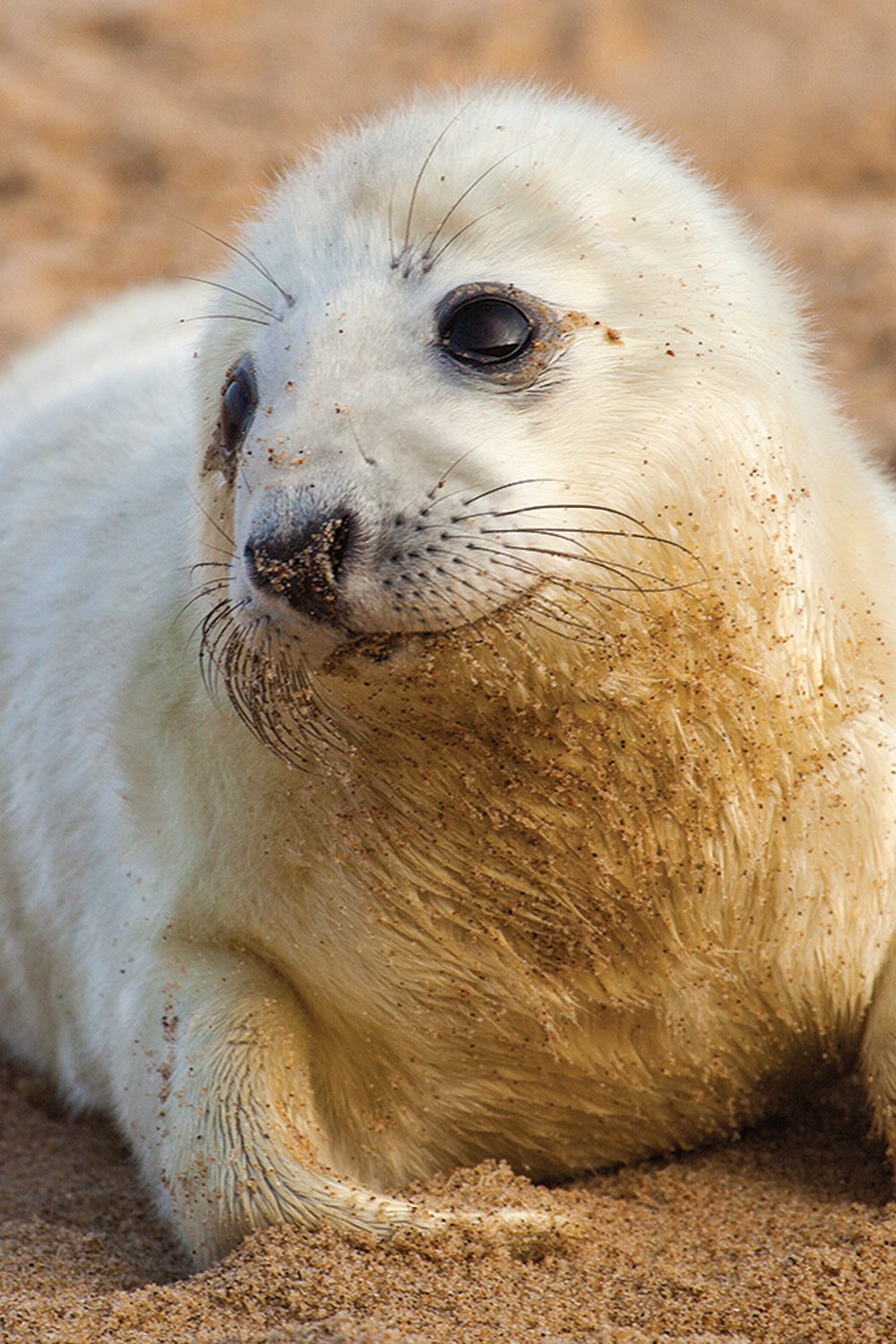
A record-breaking year for our local seals...
Despite the increasing amount of human intervention and plastic pollution, our local seal population has been celebrating a record number of newborn pups, thanks in part to Friends of Horsey Seals
Viewed from the wind bleached and marram grassed dunes, the beach at Horsey is a reminder of what’s so magical about Norfolk’s coastline. The expanse of shoreland appears undisturbed - except for what looks like large boulders. But soon there’s movement here, signs of the seals that arrive every autumn to drag their oversized bodies from the surf and lie in relaxed abandonment in the watery winter sunshine. It’s the perfect place for them to mate and prepare for the birth of their pups.
It can be quite sad to observe them hauling themselves from the surf - they’re so much like dogs that you feel like helping them - but you should resist the temptation. Signs request visitors to “please adhere to the rules when visiting the beach. Human intervention can prove fatal to the seals and in particular the pups.”
Basking in the sun they play or they simply huddle together in relaxation; they obviously don’t need human help. The’re at home.
The beaches of Horsey and Winterton are kept under observation by the Friends of Horsey Seals, a charity founded in 2011 from a former Natural England and Broads Authority project set up some ten years previously.
Over 200 volunteer wardens safeguard the welfare of the seals and organise the rescue of any animals showing signs of distress or injury. Late autumn through winter, when the seals come ashore to give birth, are particularly busy months - but throughout the year the wardens are watching for seals that make it to shore with injuries from debris picked up in the sea.
Last winter the Friends recorded more than 30 callouts to sick or injured seals from concerned members of the public. They varied from animals unable to extricate themselves from netting to more serious injuries from plastic rings and frisbees that require more comprehensive treatment.
“Despite the continued pollution of the sea, the seal population has grown steadily in the past 15 years,” says David Vyse of Friends of Horsey Seals. “This season pups have been popping up all along the coast. Most of them are well and just resting up, while others are fully weaned and have shed their white coats and are now looking for a quiet spot away from humans and dogs.”
It’s not an easy life for a young seal, however, which is where the Friends of Horsey Seals come in.

“For any seals or pups that are poorly or injured, we arrange spaces in the RSPCA East Winch Wildlife Centre - although that can be tight for space over winter,” says David. “Although there are no natural predators around here, people do tend to get too close to them. It’s very tempting, but it can have serious consequences - and we’ve seen many mothers abandon their pubs because of human intervention. It’s extremely sad when that happens.”
Although the breeding areas have been roped off, the charity desperately needs more wardens to help the seals - a need that was highlighted by the recent live television broadcast of a rescue at Winterton.
“A bull seal had become netted and took a long time to release,” says David. “For the first time we were able to use our new mobile stretcher which proved successful as the seal was very heavy and was a considerable distance from our vehicle.”
Named Colossus for obvious reasons, it took six people to lift him and the volunteers were helped by two members of the Marine and Wildlife Rescue team. The seal was safely taken to RSPCA East Winch, and despite a deep wound encircling his neck began to eat immediately - which is always a good sign.
“We’ve had an extraordinary number of seals caught up in plastics, toy flying rings, discarded fishing nets and ropes over the last year,” says David, “and they’ve caused some horrific injuries. It’s not all bad news though - at Horsey, Winterton and Waxham we’ve seen well over 2,000 pups this year, and the colony appears to be increasing by about 200 annually.”
The all-time record number of pups is good news for the seals, but it’s important to remember that they’re not a tourist attraction.
“People really need to understand they should respect these wild animals and keep their distance,” says David. “Please don’t get any closer than 20 metres and always keep your dog on a lead.”
The Rt Revd Graham Usher, Bishop of Norwich has kindly invited the charity to manage and organise an Open Day at the Bishop’s Private Garden, Norwich Cathedral on Sunday 26th July from 1.00pm. It was still going ahead as this issue went to press, but please make sure before you make the trip.
Friends of the Seals monitor the coastline from Winterton to Horsey throughout the year and the speedy response by rescue teams saving seals and pups along the north Norfolk coast is on ongoing task - and one that you can take part in.
By becoming a warden you can help support the work the charity does in protecting the seals from disturbance. Wardens are particularly needed during the grey seal pupping season (November-January) so this is a great chance to register your interest at recruitment@friendsofhorseyseals.co.uk
Our seals are one of out most treasured natural wonders - and it’s never been more important to look after them.
For more information and details, you can contact Friends of Horsey Seals at 2 Chapel Cottages, Back Lane, Rollesby, Norfolk, NR29 5EB. You can also e-mail the charity at enquiries@friendsofhorseyseals.co.uk. Remember that if you do see any wildlife in difficulty, please contact the Friends of Horsey Seals on 07706 314514 or the RSPCA on 03001 234999.

